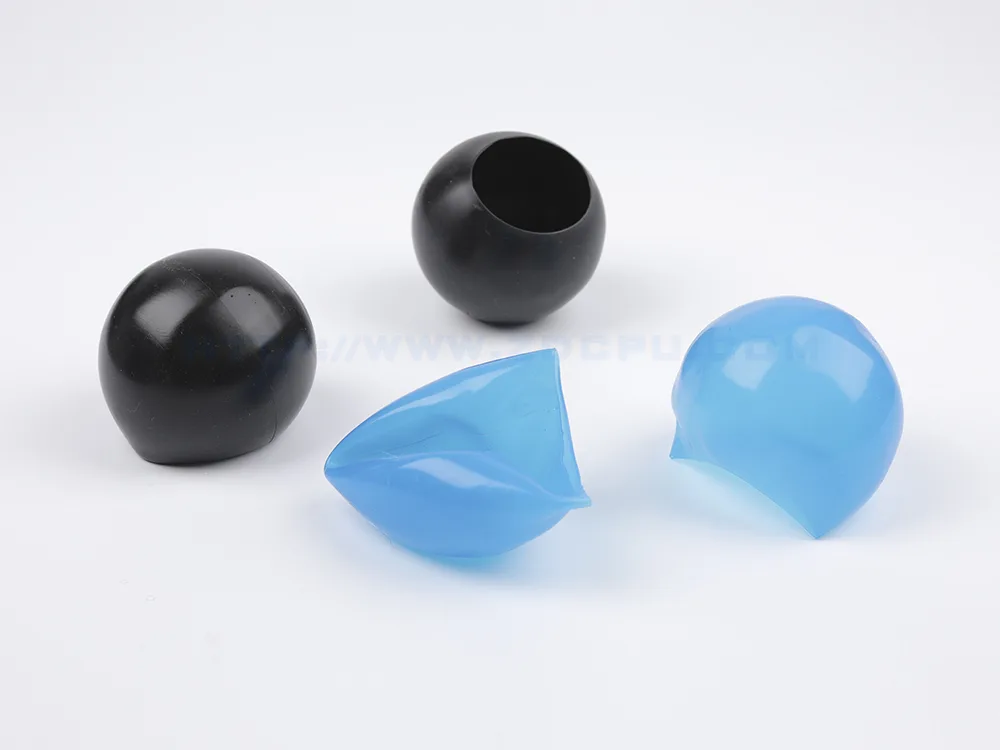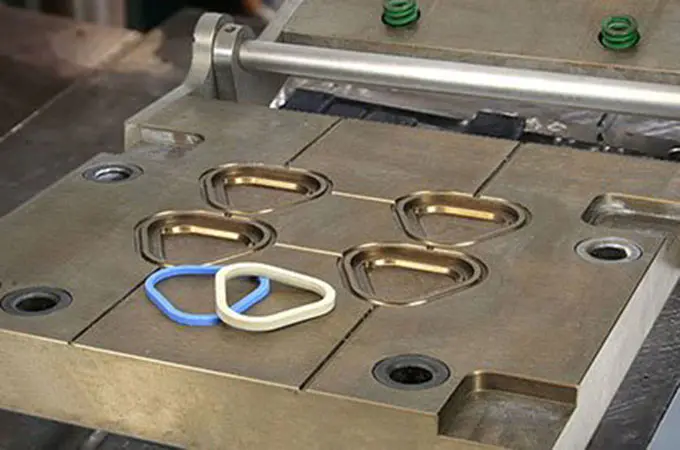
Home » VMQ

VMQ-Silicone
Material Type
Rubber
Material Full Name
Vinyl-Methyl-Silicone
Process Compatibility
Compression Molding, Injection Molding
List of Elastomer & Rubber Material
List of Plastic Material
List of Metal Material
VMQ Description
Price
$$$$$
Strength
Excellent temperature resistance, good resistance to UV radiation, ozone, and weathering.
Weakness
Relatively high cost compared to other elastomers, lower tensile strength, and tear resistance.
Common Application
Medical device, electrical insulation, household appliances, cookware, and consumer products
What is Silicone Rubber?
Silicone rubber is a synthetic elastomer made from silicone, oxygen, carbon, and hydrogen. It is a high-performance material with an unusual combination of properties, like high-temperature performance, durability, electrical insulation as well as transparency.
Based on molecular structure, silicone rubber can be classified as follows,
- Solid Silicone Rubber or High-Temperature Vulcanized, HTV.
- Liquid Silicone Rubber, LSR.
- Room Temperature Vulcanized, RTV
Properties at a Glance
*Pease note: The following material properties are for reference only. Actual values may vary depending on the selected material brand.
| Property | Metric | English |
|---|---|---|
| Density | 1.1-1.3 g/cm³ | 68.69-81.29 lb/ft³ |
| Shore Hardness A | 15-90 | 15-90 |
| Tensile Strength | 1.38~10.34 MPa | 200-1500 PSI |
| Elongation at Break | 100-900% | 100-900% |
| Min Temp. | -120~70°C | -178~-90°F |
| Max Temp. | 205~285°C | 400~ 550°F |
Chemical Properties
- Poor resistance to fuel.
- Good resistance to organic acids.
- Excellent animal and vegetable oil resistance, poor resistance to mineral oil.
How Additives Improve Silicone Properties
Different additives can be combined in different formulations of silicone material to achieve the desired balance of properties for a wide range of applications. Some common additives include:
- Fillers: Fillers like silica, carbon black, and clay are commonly added to improve mechanical properties such as strength, tear resistance, and abrasion resistance. They also help control the hardness and stiffness of the silicone rubber.
- Plasticizers: These additives are used to increase the flexibility and softness of silicone rubber. They help improve the rubber's elasticity and reduce its brittleness.
- Colorants: Pigments or dyes can be added to silicone rubber to impart color for aesthetic purposes or to provide UV protection.
Get Custom Silicone Parts with Zhongde
Is VMQ silicone rubber recyclable or biodegradable?
Silicone rubber is not recyclable or biodegradable. However, some specialized recycling processes exist for certain silicone products, but they are not widely available.
Can silicone rubber be used in outdoor applications?
Yes, silicone rubber is commonly used in outdoor applications due to its excellent resistance to UV radiation, extreme temperatures, and weathering. It maintains its mechanical properties and does not degrade significantly when exposed to outdoor conditions.
What are the key differences between high-temperature vulcanizing (HTV) and room-temperature vulcanizing (RTV) silicone rubber?
High-temperature vulcanizing (HTV) silicone rubber typically requires elevated temperatures (around 150-200°C) to cure and achieve optimal properties, whereas room-temperature vulcanizing (RTV) silicone rubber cures at room temperatures, typically within 24 hours, without the need for additional heating.




